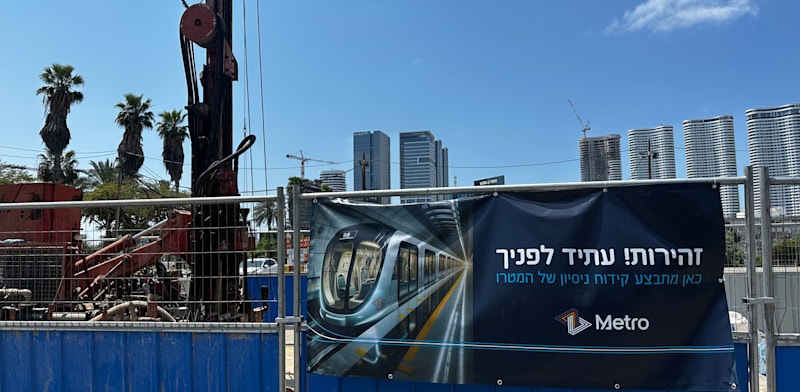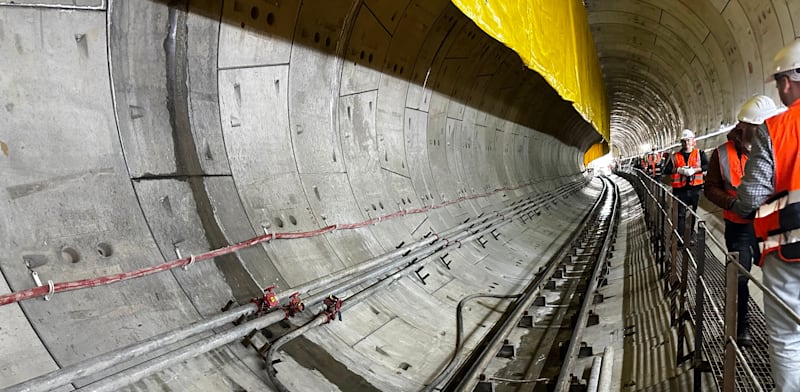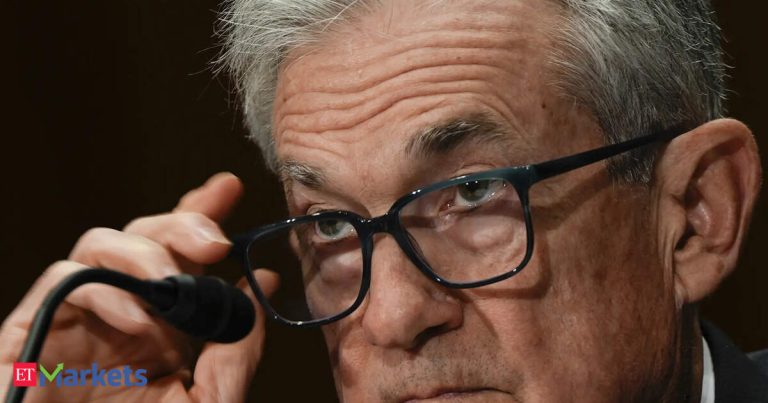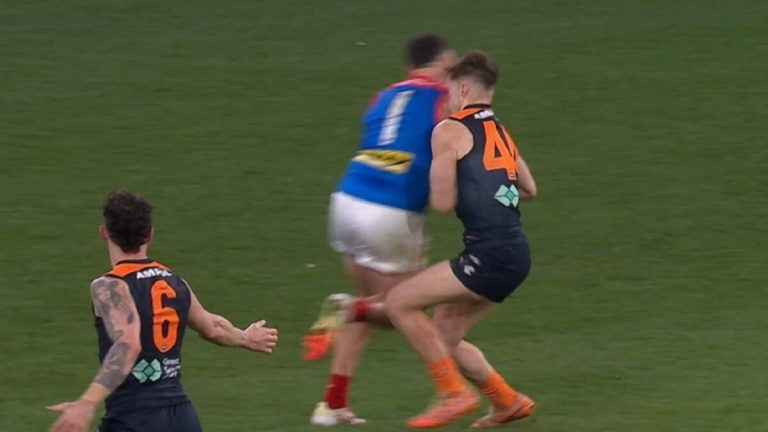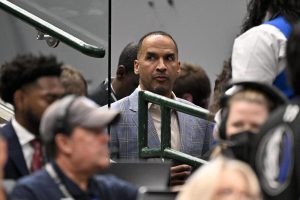Last week, it looked like the Jerusalem light rail Blue Line project had screeched to halt, after the Ministry of Finance accountant general canceled an agreement by the winning consortium of Dan and Danya Cebus (TASE: DNYA) to procure carriages from Chinese company CRRC. This followed US pressure to avoid dealings with the Chinese state-owned company.
The consortium turned to the Chinese after Polish company PESA withdrew from the project last year, due the increasing risk of doing business with Israel and the downgrade of its credit rating. So as not to delay the project, funding for the civil engineering work has been approved in the meantime, and it has been decided that within six months procurement of carriages will be arranged through a new tender.
The consortium chose the Chinese supplier after receiving a more expensive bid from Korea’s Hyundai Corp. (a subsidiary of Hyundai Engineering and Construction). Following talks, Israeli government officials were also under the impression that Hyundai was not eager to embark on operations in Israel due to the war.
Towards the close of the tender process, pressure from elements in the US government had begun to increase, along with the lack of decision-making by the Shin Bet and the National Security Agency on the issue of Chinese involvement in infrastructure. When CRRC competed with Egged and Shikun & Binui for construction of the Tel Aviv light rail construction Green and Purple Lines, the bid failed not because of Chinese involvement, but because it did not meet economic viability tests. The tender committee believed that it was a sloppy bid, which had no feasibility and would later cost the state huge extra sums to complete the project.
Rehearsal for the struggle to build the Metro
The excuse the state found for quashing the bid allowed it to avoid declaring an official policy on Chinese participation in infrastructure projects due to US opposition. But while Chinese companies are essentially blocked from building Israeli projects, industry sources believed that they could still compete as suppliers to construction companies.
Last year following assertions against Chinese tender involvement by Minister of Transport Miri Regev during a visit to India, the Ministry of Finance responded sharply at the time, stating that “there is no policy decision that disqualifies certain countries.” But last week the same ministry was forced to rule otherwise. Now one of the solutions that is emerging is to transfer the production of the carriages to a CRRC factory in the US. But this fight over the procurement of the carriages is just a rehearsal for the fights over construction of the enormous Metro project.
Examining entry into infrastructure projects in Israel
RELATED ARTICLES
The representative of the Chinese companies when they entered Israel’s infrastructure sector was Shaul Bitterman. He now threatens to end their activities in Israel. Bitterman now represents other companies from India and Korea, including Hyundai. Despite the impression that government officials in Israel had about Hyundai’s intentions, the Korean company sent a series of letters before the decision was made to approve the purchase of the carriages, expressing support for the Israeli project and desire to participate in it, even though its bid was higher.
According to industry estimates, Bitterman brought Hyundai’s bid to the attention of the US, stressing that if there is an alternative, why do business with China? The US administration exerted its weight on the issue and forced Israeli government officials to postpone the decision. Even if the Chinese ultimately supply the cars to Jerusalem through US factory, Hyundai Engineering intends to enter infrastructure projects in Israel and compete in the tenders that will be published next year for the Metro excavations.
Delegations to India and South Korea
Delegations of Israeli government officials have traveled to India and South Korea in the past two years to convince these companies to come to Israel. Hyundai’s market cap is $32 billion, and it is involved in dozens of infrastructure projects around the world – its entry into Israel would be competition for European rivals.
However, according to government sources, the market segment examination of companies working and interested in Israel in preparation for the announcement of the Metro tenders still reveals a severe shortage of engineering personnel. To dig 300 kilometers of subway tunnels under 24 municipalities in the Tel Aviv metropolitan region, it is necessary to operate 22 TBM machines that dig underground and line the tunnels with concrete. At the same time, there is a single-digit number of companies operating in Israel that compete in the infrastructure market, and they are also busy with other projects, although in any case, knowledge of international companies is required.
Some are concerned that Israeli government policy towards the Chinese is intended to satisfy US strategy, not Israeli strategy, since the country will have difficulty finding alternative personnel in the fields of civil engineering, even if companies from India and South Korea come to Israel.
Published by Globes, Israel business news – en.globes.co.il – on April 22, 2025.
© Copyright of Globes Publisher Itonut (1983) Ltd., 2025.
